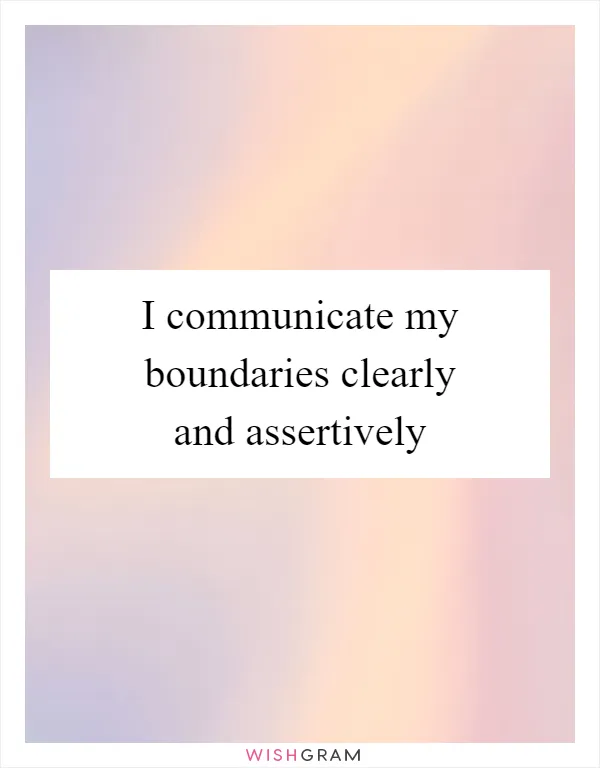I communicate my boundaries clearly and assertively
The affirmation "I communicate my boundaries clearly and assertively" can help you establish healthy relationships with others. When you communicate your boundaries, you are letting others know what you are comfortable with and what you are not. This can help prevent misunderstandings and conflicts in your relationships.
Communicating your boundaries clearly and assertively means that you are not afraid to speak up for yourself. You are confident in your values and beliefs, and you are willing to stand up for them. This can be difficult for some people, especially if they have a history of being passive or accommodating. However, it is an important skill to develop if you want to have healthy relationships.
One way to communicate your boundaries is to use "I" statements. For example, instead of saying "You always interrupt me" you could say "I feel frustrated when I am interrupted". This puts the focus on your feelings and experiences, rather than blaming the other person. It also makes it clear what behavior you would like to see changed.
Another way to communicate your boundaries is to be specific. Instead of saying "I don't like it when you're mean to me" you could say "When you raise your voice and call me names, it hurts my feelings". This gives the other person a clear idea of what behavior is not acceptable.
It is also important to be assertive when communicating your boundaries. This means that you are firm and confident in your communication. You are not aggressive or passive, but rather you are clear and direct. This can be difficult for some people, especially if they are used to avoiding conflict. However, being assertive can help you establish healthy boundaries and prevent others from taking advantage of you.
When you communicate your boundaries clearly and assertively, you are taking control of your relationships. You are letting others know what you are comfortable with and what you are not. This can help prevent misunderstandings and conflicts, and it can also help you build stronger, healthier relationships.
